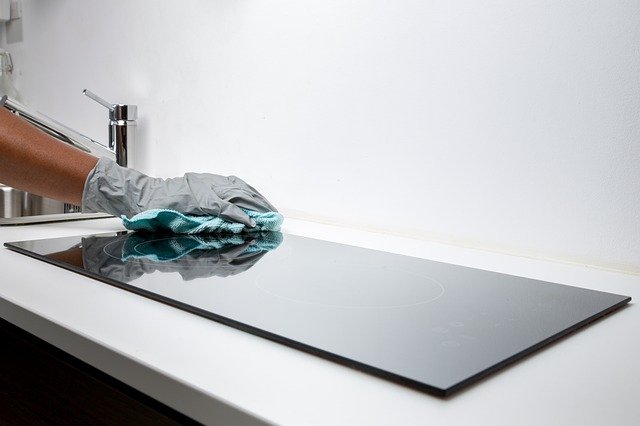Table of Contents
Cleanliness

Cleanliness refers to both the abstract state of being devoid of germs, filth, trash, or waste, as well as the habit of achieving and maintaining such a state. Cleaning is a popular method of achieving cleanliness. As the saying “Cleanliness is next to Godliness” says, cleanliness is usually regarded as a good trait, and it can be perceived as contributing to other goals such as health and attractiveness.
Cleanliness differs from purity in that it emphasizes a continuous practice or collection of behaviors for the purpose of maintenance and prevention, whereas purity is a physical, moral, or ritual condition of pollution independence. Cleanliness is usually a quality of an individual or an item, whereas cleanliness has a social component and direction, or suggests a system of interactions. Our present cultural ideal necessitates cleanliness. Cleaning can be found in a home or business, but it is not always pure; cleanliness can also be found in people who keep their homes clean or avoid getting dirty. On a practical level, cleanliness is thus linked to hygiene and illness prevention. Washing is one way to maintain physical cleanliness, and it’s usually done with water and soap or detergent. Cleaning procedures are crucial in many forms of industry.
Cleanliness is a verb that relates to maintaining the cleanliness and purity of our bodies, minds, clothes, houses, settings, and work situations. Cleanliness is critical for our mental and physical health. It is vital for social and mental health to clean up the environment and its surroundings. Because filth is the source of many diseases, we should make cleanliness a habit, and dirt should be removed from all surfaces at all times. Whoever does not bathe on a daily basis, wears unclean clothes, or keeps my house or surroundings filthy is always sick. In the surrounding environment, many various types of bug bacteria, bacterial viruses, and fungus are formed, resulting in diseases.
People who have unhealthy habits spread dangerous and deadly illnesses. Infected diseases spread across large areas, making people sick and, in certain circumstances, killing them. As a result, we must keep our surroundings clean on a regular basis. We should wash our hands with soap every time we eat something. A hard bath requires us to safeguard our bodies and faces. It is critical for our physical and emotional well-being to dress in clean clothes. Cleanliness increases our self-esteem and encourages others to trust us. Cleanliness increases our self-esteem and encourages others to trust us. This is a wonderful habit to develop because it will keep us happy for the rest of our lives. As a result, we will be fairly proud of ourselves in society.
Hygiene is essential for a healthy lifestyle and high quality of life. It is critical in the development of a person’s celebrity. The Indian government has designed and implemented numerous programs and social policies to promote and distribute cleanliness among the Indian people. Cleanliness should be instilled in us as early as childhood and maintained throughout our life. A good habit can help a person put a stop to unwanted thoughts and desires. We must always take for ourselves and the environment in which we live in order to secure a happy and healthy future. We should wash our hands with soap every day, bite our nails, clean and straighten our clothes, and so on. Our parents should teach us how to maintain the house clean and pure. To prevent illness transmission, we must keep our surroundings clean. Hands should be washed with soap after eating and before eating. Throughout the day, we should drink lots of clean, pure water, avoid eating outside and avoid spicy and prepared beverages. Although this is not a mandatory duty, we should accomplish it calmly. It keeps us in good mental, physical, social, and intellectual shape. A tiny step taken along with everyone could turn into a big step. When a small child can successfully walk, talk, and learn to run, and if his parents support him, he can easily develop the habit of cleanliness from a young age. Parents must learn to follow in their forefathers’ footsteps in order to live a fulfilled life. They must understand that hygiene is also important for a healthy life and longevity, and they must instill a culture of cleanliness in their children. Instilling a feeling of cleanliness in your children will be a significant step forward.
Cleanliness promotes our mental, physical, social, and intellectual well-being in every way. Our grandma and mother have always been quite cautious about cleanliness before worship, it is not a new topic; they just want to make cleanliness a habit for us. He, on the other hand, takes the wrong approach by failing to communicate the purpose and benefits of cleaning. That is why it is so tough for us to keep the place tidy. With their children, all respondents should rationally explore the purpose, benefits, and requirements of sanitation. They must be educated that, like eating and drinking, cleanliness is critical to our well-being. It’s important to remember that the dirt is only tossed in the bin to keep the illness from spreading across the house or neighborhood and to ensure that the filth is properly disposed of. Cleaning is not only the responsibility of one individual, it is also the responsibility of every citizen of their home, society, community, and country. It is critical that we appreciate its relevance and benefits. We must pledge to keep India clean, not to disparage ourselves or to allow others to do so.
Affirmation

● I break old behaviors and replace them with new, beneficial ones.
● I relinquished my impatience and placed my faith in God’s plan.
● I am in charge of the content of my existence.
● Obstacles are now simply removed.
● I’m no longer resentful of the lessons I’m being taught.
● Others do not have power over my feelings; I do.
● Positive behaviors abound in my life.
● I let go of things that are no longer useful to me.
● I am grateful for the positive influences in my life.
● I’m content with what’s going on.
● Today is a fresh start.
● I treat myself and others with respect.
● I let go of the desire to replay events in my head.
● Today, I am grateful for my good health and happiness.
● Negative energy is transformed into love and light by me.
● I forgive myself and surrender my anxieties to God.
● You’re fantastic.
● When I notice myself becoming caught up in negative thoughts, I make a conscious effort to relax my energies.
● I am conscious of the energy I emit and the energy I allow to surround me.
● I choose faith over fear.
● I eagerly anticipate the completeness of all that God has in store for me.
● I trust my Heavenly Father to direct my steps and lead me in the right direction.
● When I notice myself becoming caught up in negative thoughts, I resolve to take a break.
● I’m conscious of the energy I emit and allow to surround me.
● Fear has no place in my life, so I choose faith.
● I am grateful for everything God has in store for me.
● I have faith in my Heavenly Father to guide and order my movements.
● I’m starting to like cleaning.
● I’m always going to clean up after myself.
● I will keep my house clean on a regular basis.
● I’m starting to resemble someone who keeps their house in order all of the time.
● I’m starting to get into the habit of cleaning up after myself on a regular basis.
● To me, cleanliness and hygiene are becoming increasingly vital.
● I’m starting to understand how to clean as I go.
● I’m starting to realize how satisfying it is to have a clean home.
● It gets easier to keep the bathroom clean every day.
● I’m cultivating the mindset of someone who is always clean and sanitary.
● Cleaning is something I enjoy doing.
● I’m a naturally clean person.
● Cleaning is an important component of my daily routine.
● I adore the sense of having a clean and tidy home.
● My life revolves around keeping everything clean.
● I’ve discovered that cleaning the dishes relaxes me.
● It’s just how I am. I always clean up after myself.
● People think of me as someone who is always tidy.
● Cleanliness and wellness are vital to me in my home.
● I clean up after myself whenever I make a mess.
● I’m starting to like cleaning.
● I’m always going to clean up after myself.
● I will keep my house clean on a regular basis.
● I’m starting to resemble someone who keeps their house in order all of the time.
● I’m starting to get into the habit of cleaning up after myself on a regular basis.
● To me, cleanliness and hygiene are becoming increasingly vital.
● I’m starting to understand how to clean as I go.
● I’m starting to realize how satisfying it is to have a clean home.
● It gets easier to keep the bathroom clean every day.
● I’m cultivating the mindset of someone who is always clean and sanitary.
● Cleaning is something I enjoy doing.
● I always make a point of cleaning as I go.
● I appreciate keeping my home clean and tidy.
● I am a squeaky-clean individual.
● I always clean first, then unwind.
● I have a cleaning schedule that I follow religiously.
● Things are always cleaned before they become too filthy for me.
● I always make sure to clean up after myself.
● My bathroom is sanitary and well-kept.
● I have an innate need to keep things tidy.
● I’m confident in my ability to handle this decluttering project one step at a time.
● I put things in their proper places and know where to look for them.
● Cleaning is no longer a source of stress for me.
● I keep my desk and files organized so that I can finish duties on schedule.
● I have faith in my abilities to make the greatest choices for my possessions, purchases, and obligations.
● A tidy home appeal to me.
● I appreciate living a clutter-free, orderly existence.
● My life is meticulously planned.
● Thank you for allowing me to use your resources.
● My task is well-organized, and I enjoy working on it.
● Thank you for allowing me to make the best of what I’ve got.
● I am well-organized and productive. I know where I’m going and how to get there, so instead of “things” or “stuff,” I’m going to fill my leisure time with experiences.
● I’m at ease when it comes to organizing and cleaning.
● In every aspect of my life, I am well-organized.
● I can appreciate things even if I don’t own them.
● My home is usually nice and clutter-free, so I always know where my belongings are.
● For me, living my best life is a breeze.
● In every aspect of my life, I am well-organized.
● Being organized is something I enjoy doing and it comes naturally to me.
● I am deserving of my own care.
● I understand that my progress is taking place at the pace of my Higher Power.
● I enjoy cleaning and organizing my home because it makes me feel better.
● I designate at least one clutter-free zone or room where I only keep goods that I use and enjoy.
● Cleaning, in my opinion, is a celebration of life’s little pleasures.
● Every day, I feel myself becoming more organized.
● I organize my life so that I can unwind knowing that everything is in its proper place.
● Now that I’m organized, everything is so much easier.
● Others regard me as a dependable and well-organized individual.
● My life and home are neat and tidy.
● My life runs more smoothly when I am organized and on top of things.
● I keep track of my belongings.
● My ability to organize helps me to be more productive.
● To me, neatness is very important.
● I don’t require a large number of possessions.
● I prefer to live a simple life.
● Others regard me as a dependable and well-organized individual.
● My life and home are neat and tidy.
● My life runs more smoothly when I am organized and on top of things.
● I keep track of my belongings.
● My ability to organize helps me to be more productive.
● To me, neatness is very important.
● I don’t require a large number of possessions.
● I prefer to live a simple life.
● I’m a neat freak that cleans up after myself.
● My surroundings are in perfect sync with nature, and everything runs smoothly.
● I’m inspired to let go of things that don’t serve me anymore.
● Physically, emotionally, psychologically, and spiritually, I live in a clutter-free environment.
● I’m a neat freak that cleans up after myself.
● My surroundings are in perfect sync with nature, and everything runs smoothly.
● I’m inspired to let go of things that don’t serve me anymore.
● Physically, emotionally, psychologically, and spiritually, I live in a clutter-free environment.





